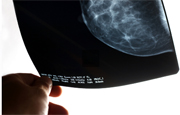
WEDNESDAY, Aug. 10 (HealthDay News) — The breast cancer drug Herceptin increases the risk of heart problems in elderly patients, especially those with a history of heart disease and/or diabetes, a new study says.
Researchers analyzed the medical records of 45 women, ages 70 to 92, who were treated with Herceptin (trastuzumab) since 2005 and found that 12 (26.7 percent) of them developed heart problems caused by the drug.
That rate is slightly higher than what was noted in earlier clinical trials of younger, healthier women.
In this new study, 33 percent of the women with a history of heart disease developed either asymptomatic or symptomatic heart problems as a result of taking Herceptin, compared with 9.1 percent of women without a history of heart disease.
The researchers also found that about 33 percent of women with diabetes developed heart problems, compared with 6 percent of diabetes-free women.
When the women with heart problems stopped taking Herceptin, all but one recovered fully and five were able to re-start treatment with the drug.
The study appears in the journal Annals of Oncology.
“This is the first study specifically to assess trastuzumab-related cardiac toxicity and the cardiovascular factors that are associated with an increased risk in a selected population of elderly breast cancer patients,” study author Dr. Cesar Serrano, who conducted the research while working as a clinical fellow at the Department of Medical Oncology Breast Cancer Centre at the Vall d’Hebron University Hospital in Barcelona, Spain, said in a journal news release.
“Trastuzumab is generally well-tolerated and, although there are some concerns about it causing heart problems, until now few risk factors have been identified among patients in clinical trials, most of whom are usually younger than 70 years and have good general health. Our study has demonstrated a significantly increased incidence of cardiac events among patients aged 70 and over with cardiovascular risk factors such as a history of cardiac disease and diabetes,” said Serrano, who is now a postdoctoral research fellow at Brigham and Women’s Hospital in Boston.
Serrano said the findings suggest that elderly women with one or more heart risk factors who are being treated with trastuzumab should be referred to a cardiologist. He also recommended closer monitoring of such patients for possible heart problems.
More information
The U.S. National Cancer Institute has more about breast cancer treatment.

